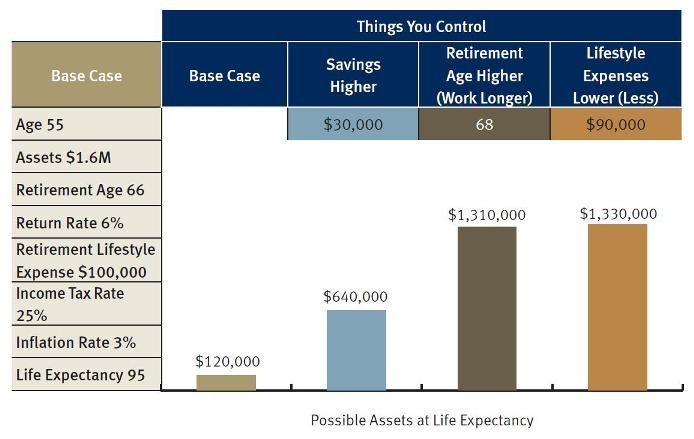Retirement Investors Use a Tactical Strategy
Post on: 13 Август, 2015 No Comment

Related Links
Weve seen a resurgence of market volatility this year, yet major indices still hover around historical highs. Despite words of caution, money continues to flow into stocks on hopes of further market gains. But at what risk to your long-term financial future?
 
Uncertainty surrounding the extended bull market run, combined with the Federal Reserve slowly drawing down on its bond-buying program, creates a potentially dangerous environment for pre-retirees and retirees.
 
Bull Market Nearing an End?
Historically, periods of sustained market gains (bull markets) top off at five years. On March 9, we entered the sixth year of the current bull market.
 
So, you need to ask yourself how you would feel if the markets were to decline by 10 percent, 20 percent or even 40 percent or more? The answer would be not good for just about all of us.
 
What a Tactical Bucket Strategy Offers
Investors learned a number of lessons in 2008, chief among them that they need a multi-faceted approach protecting their principal from market downturns. For those concerned about a market correction sometime soon, a bucket approach combined with a tactical absolute return strategy or more simply, a tactical bucket strategy might be for you.
 
A bucket strategy is a simple, yet effective approach. Its main objective is to divide your assets based on your time horizon and risk tolerance to ensure youll have peace of mind through a steady, reliable source of retirement income.
 
Taking this approach a step further, a tactical bucket strategy is a portfolio management approach that offers a modern and dynamic solution for retirees. It means investing with managers who segment your assets into separate buckets matching these three risk considerations: safe and secure, low risk and moderate risk.
 
Avoiding portfolio damage is important in todays world. If you or your spouse are 65 years old, there is a 72 percent chance one of you will live until 85 and a 45 percent chance one will live into your 90s, according to data from the Society of Actuaries. Put another way, the retirement phase of your life could be nearly 30 years and you could endure five to six recessions during that time.
 
Moving to a Risk-Off Position
Tactical money managers are not market timers; they watch market patterns and use insight gleaned from history to determine the best, and most-risk tolerant, moves for investors. When they think the time is right, they can transition into a risk-off position: moving to 90-day Treasury bills or money market accounts to avoid declines in their investment portfolios.
 
The best way to preserve capital, especially through market downturns, is through low-risk, low-volatility asset managers that can attain equity-like rates of return without the risk generally associated with the stock market. The overarching appeal is the managers ability to recognize trends and move investors out of harms way before the real damage can be done.
 
A great example of where the tactical bucket strategy works is in high-yield bond funds. The fluctuation of their high-yield bonds is more a function of credit and default risk than interest rates going up or down. Since market trends for high-yield bonds are identifiable before bond funds are impacted, when the economy falters and these bonds begin deteriorating in value, a tactical asset manager can steer away from the bonds and protect clients.
 
Employing a tactical strategy makes a difference when it matters most: during a market downturn. For retirees drawing down their assets with a core objective of preserving capital, market volatility is disastrous.
 
A tactical manager, however, can move investors money to cash, and out of stocks and bonds, as conditions warrant. This flexibility allows these managers, in the current market environment, to effectively protect principal and minimize risk.
 
While the markets future is always uncertain, it will always experience ups and downs. Whether or not you want to participate in those fluctuations is up to you. But I think its a fair assumption that no investor wants to experience another 2008.














